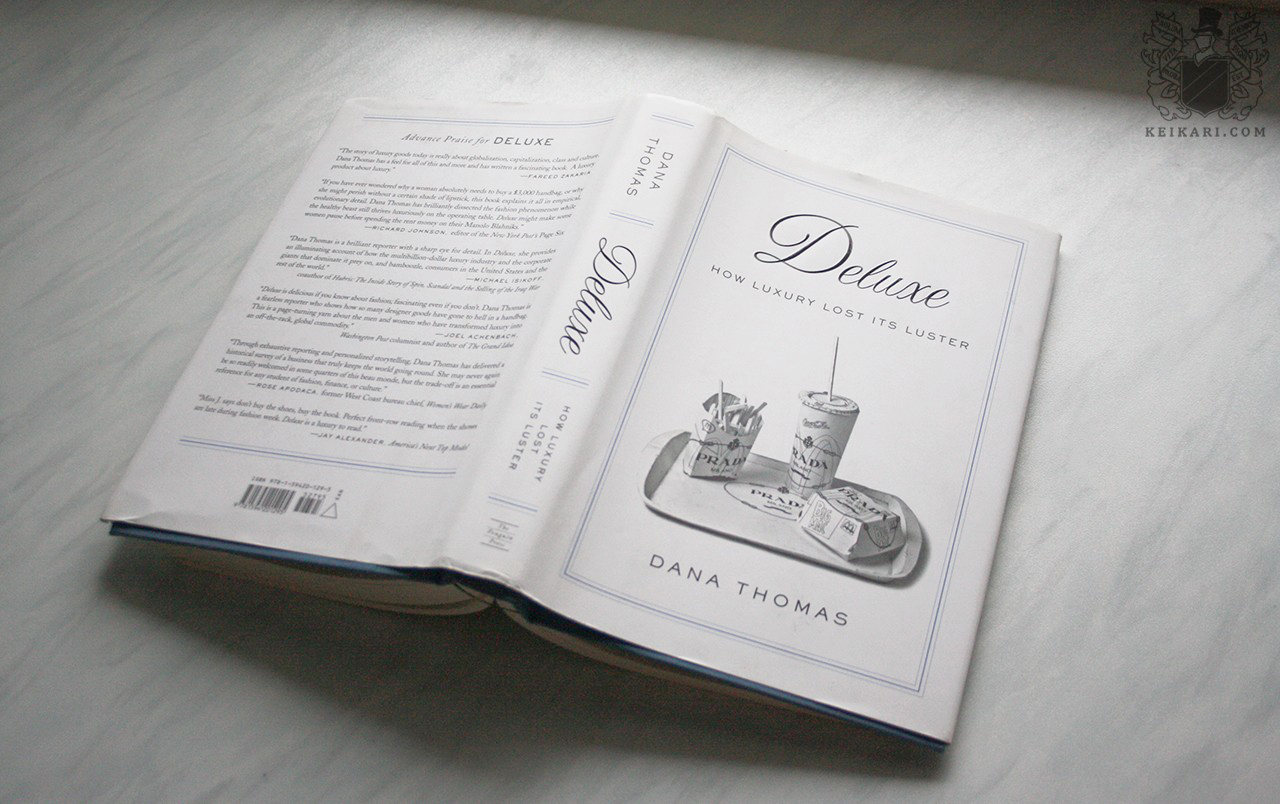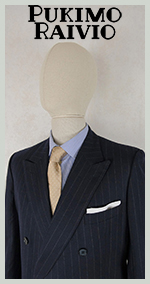Dana Thomas: How Luxury Lost its Luster
0October 31, 2017 by Ville Raivio
Dana Thomas deals with style. She worked as the culture- and fashion reporter for Newsweek magazine in Paris for 13 years, and has written about the subjects for international magazines. She has also taught journalism at university level for three years. Deluxe: How Luxury Lost its Luster is her insider’s view and research about the rawness of fashion business in the 20000s. With the help of a fashionable press card and suitable contacts she gained access to manifold workshops and factories, which the usual consumers only see through glossy brochures. Published in 2007, the opus rose to reach the coveted list of New York Times best sellers. The book’s main thesis is clear enough: the trade in fashion and luxury goods, worth over 100 billion euros annually, attracts businesses to shenanigans in order to maximise their profits ever higher. Many fashion houses have started with a different ethos, however. They have once gained repute with high quality, artisanal or commissioned or groundbreaking, and later on devolved to selling mediocre goods with large logos and huge advertising campaigns. The so-called luxury has lost its luster.
Products from Pukimo Raivio
Ralph Lauren, Black Label suit, size 52EU
The publication is split into three parts and its chapters deal with the beginning of current-day fashion business, the conglomeration of the largest groups, the globalisation of trade, celebrity endorsements, perfume trade, the position of ladies’ handbags, silk, fabric weaving, clothes manufacturing, the spread of street stores, fakes, the future of the fashion trade — and lastly, the pampering of VIP-customers that’s becoming ever more impossible. On her dozens and hundreds of trips Thomas has talked with countless of people in the business of fashion. What she has seen and heard speaks ugly truths about the trade, in which most of the largest businesses have abandoned quality for mammon. Handwork has been replaced with machine work, European manufacturing with Asian, own factories replaced with contractors or sub-contractors, materials and inner structures have been replaced with cheaper bits — and money rules all. Huge advertising boards keep up the “brand” concepts and remind their viewers about the “quality” that often times does not ring true. A random figure from the book tells us that some 40 companies hold sway of over 60% of the trade.
Deluxe is an essential, eye-opening book for each man and woman who holds an interest in the business of clothing or fashion. It does not only deal with negative things or reveal the games of thrones behind the curtains, but also tells stories about the, usually small, artisan companies who still reach for the highest possible quality. The reader will find out which perfume makers, for example, favour natural scent materials, which companies have been anointed to handwork, and which kinds of clothes are worth their price. With rising economies in Africa and Far East, more people can afford a fashionable good or two in the 2000s. The trade in so-called luxury goods has risen steadily despity global economic crashes. To sum up the book, and to quote my favourite writer, G. Bruce Boyer: more people are interested in luxury than before but despite the interest, artisans and crafts are dying out.
Category Reading, Society | Tags:




Leave a Reply